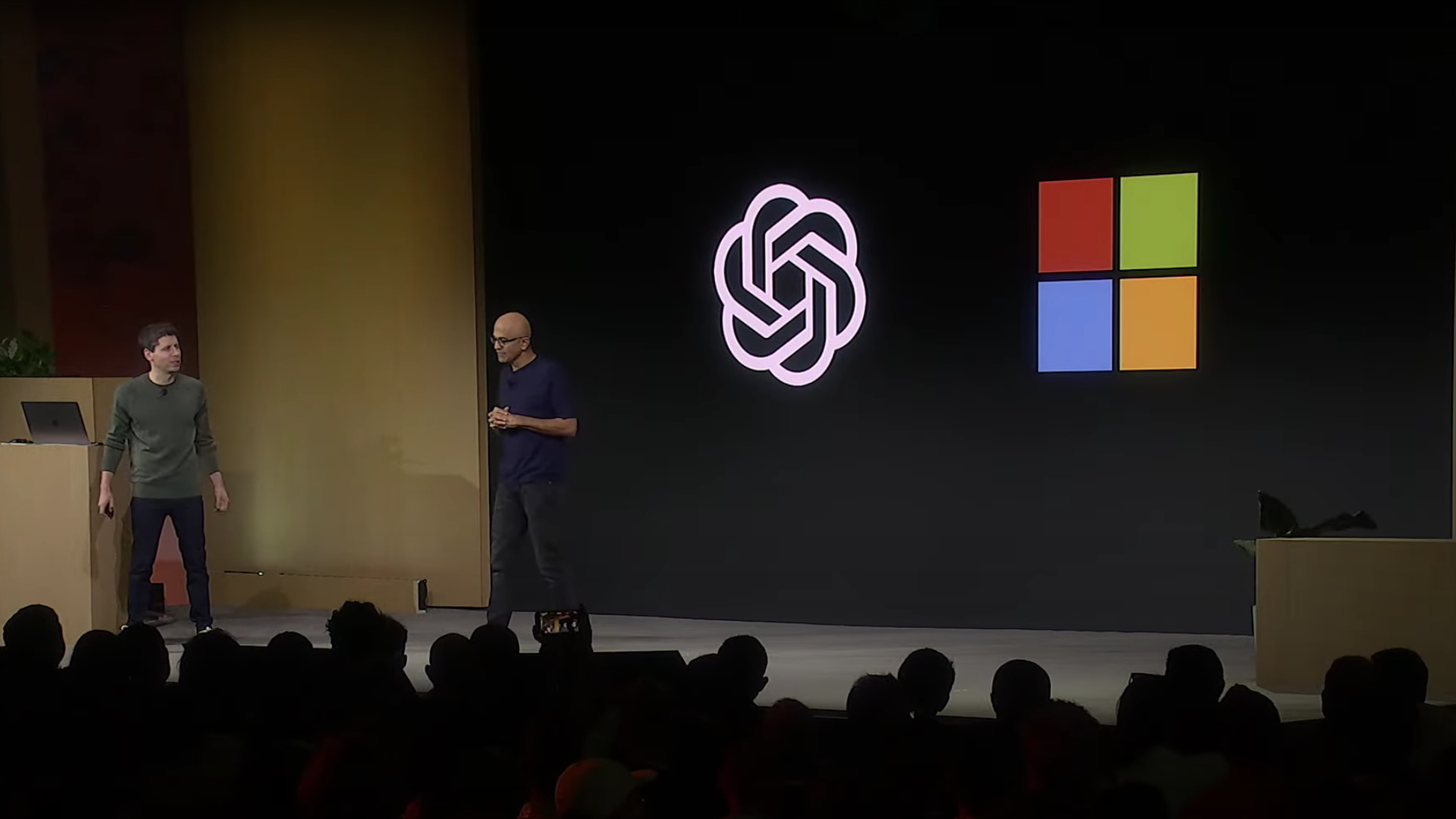As you might already know, OpenAI and key investors, including SoftBank and Oracle, recently unveiled a new project dubbed Stargate. The project is worth $500 billion and is designed to help the ChatGPT maker build data centers in the United States for its AI advances, including AGI, which SoftBank CEO Masayoshi Son claims is coming very, very soon.
Microsoft is OpenAI’s largest investor, with a 49% stake, translating to $14 billion. As part of its complicated partnership with the ChatGPT maker, Microsoft was once the exclusive cloud computing partner for OpenAI. However, OpenAI’s $500 billion investment in computing infrastructure changes its relationship with Microsoft.
While Microsoft no longer holds the exclusive cloud provider status for OpenAI, a newly signed agreement grants the tech giant “right of first refusal.” For context, Microsoft will be the first option to host OpenAI workloads in its cloud infrastructure and services. However, if it can’t meet the requirements, OpenAI can source the services from competitors.
The new agreement also retains 4 key elements of Microsoft and OpenAI’s previous agreement, including:
- Microsoft has rights to OpenAI IP (inclusive of model and infrastructure) for use within our products like Copilot. This means our customers have access to the best model for their needs.
- The OpenAI API is exclusive to Azure, runs on Azure and is also available through the Azure OpenAI Service. This agreement means customers benefit from having access to leading models on Microsoft platforms and direct from OpenAI.
- Microsoft and OpenAI have revenue sharing agreements that flow both ways, ensuring that both companies benefit from increased use of new and existing models.
- Microsoft remains a major investor in OpenAI, providing funding and capacity to support their advancements and, in turn, benefiting from their growth in valuation.
“OpenAI recently made a new, large Azure commitment that will continue to support all OpenAI products as well as training. To further support OpenAI, Microsoft has approved OpenAI’s ability to build additional capacity, primarily for research and training of models.”
This news comes amid reports citing OpenAI complaints about Microsoft’s struggles to meet its cloud computational needs. The report further suggested that the tech giant’s failure to meet its computational demands has delayed the release of next-gen AI products, hurting its chances of hitting the coveted AGI benchmarks ahead of its competitors such as Anthropic and Google.
Elsewhere, it was also reported that OpenAI has plans to scrap a stringent clause severing its partnership with Microsoft after hitting the AGI benchmark to secure more funding and extend access to its vast resources. For context, intricate details about Microsoft’s partnership with OpenAI suggest that AGI, at least figuratively, constitutes an AI system generating $100 billion in profit.
Related: Investors mount pressure on OpenAI to turn into a for-profit in 2 years
This is amid bankruptcy reports, with projections of the ChatGPT maker making a loss of $5 billion in 12 months. However, a funding round from investors, including Microsoft, NVIDIA, and SoftBank, raising $6.6 billion kept the AI firm in business, pushing its market cap beyond $157 billion. Interestingly, market analysts predict Microsoft could acquire OpenAI in 3 years as investor interest in AI begins to fade. They further project OpenAI could make an additional $44 billion loss before seeing a profit in 2029, partly due to its Microsoft tie-up.





